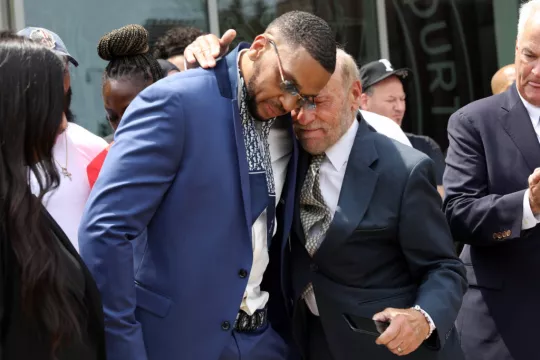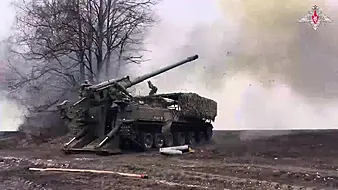New York City has agreed to pay seven million dollars (£5.6 million) to a man who spent 23 years behind bars for a murder he did not commit.
Grant Williams was exonerated last July in the 1996 shooting of Shdell Lewis outside a Staten Island public housing complex.
Mr Williams, 51, had been paroled in 2019.
After being cleared last year, he filed a notice of claim – the first step toward suing the city.
Comptroller Brad Lander’s office has the authority to settle such claims without court action and occasionally does so, including in the 2014 police chokehold death of Eric Garner.
Mr Williams’ lawyer, Irving Cohen, said the city “did the right thing” by settling quickly.
“This will assist him in going forward and trying to get back on his feet” and finally putting the ordeal behind him, Mr Cohen said.
Grant Williams spent 23 years in jail for a crime that he did not commit.
No amount of money can bring those years back for Mr. Williams or his family.
But I am pleased that my office was able to move quickly to a fair & early resolution of this claim.https://t.co/UpxG2USayp— Comptroller Brad Lander (@NYCComptroller) May 23, 2022
He said the state recently settled a separate claim from Mr Williams for five million dollars (£4 million).
A message inquiring about the matter was left for state officials.
Mr Lander, a Democrat, said he was pleased that the city was “able to move quickly to a fair and early resolution of this claim”.
The case against Mr Williams had rested largely on the evidence of a couple of eyewitnesses.
One was a police officer who chased the gunman — and initially gave a description that did not match Mr Williams.
Prosecutors at his trial also sought to suggest a connection between Mr Williams and a baseball cap that the shooter dropped at the scene, though the hat was never tested for DNA that could have pointed to its wearer.
It was emblazoned with the logo of the Wu-Tang Clan.
Mr Williams had worked at the multiplatinum-selling rap group’s Staten Island studio but his lawyer notes that there was no telling how many fans might have had Wu-Tang Clan hats at the time.
No physical, forensic or digital evidence tied Mr Williams to the crime and some witnesses testified that he was not the gunman.
Another eyewitness, a friend of the victim’s, had also told investigators that Mr Williams was not the gunman.
But police did not tell prosecutors about it until after he was indicted and that witness did not give evidence at the trial.
Mr Williams unsuccessfully appealed his conviction for years before Staten Island district attorney Michael McMahon’s office agreed to review it.
Prosecutors ultimately joined Mr Williams in seeking the dismissal of his conviction, saying they now believe he is innocent.
Mr Williams told reporters at the time that he never lost faith that he would be exonerated and used to tell other inmates they would see it on the news.
“And today is that day,” he said with relatives, supporters and friends including Wu-Tang member Ghostface Killah by his side.
Since then, Mr Williams has been adjusting to restarting his life, Mr Cohen said.
Mr Cohen said his client, who earned an associate’s degree behind bars, hopes to help other wrongfully convicted people and help people steer clear of crime.
“He’s very resilient,” he said.







